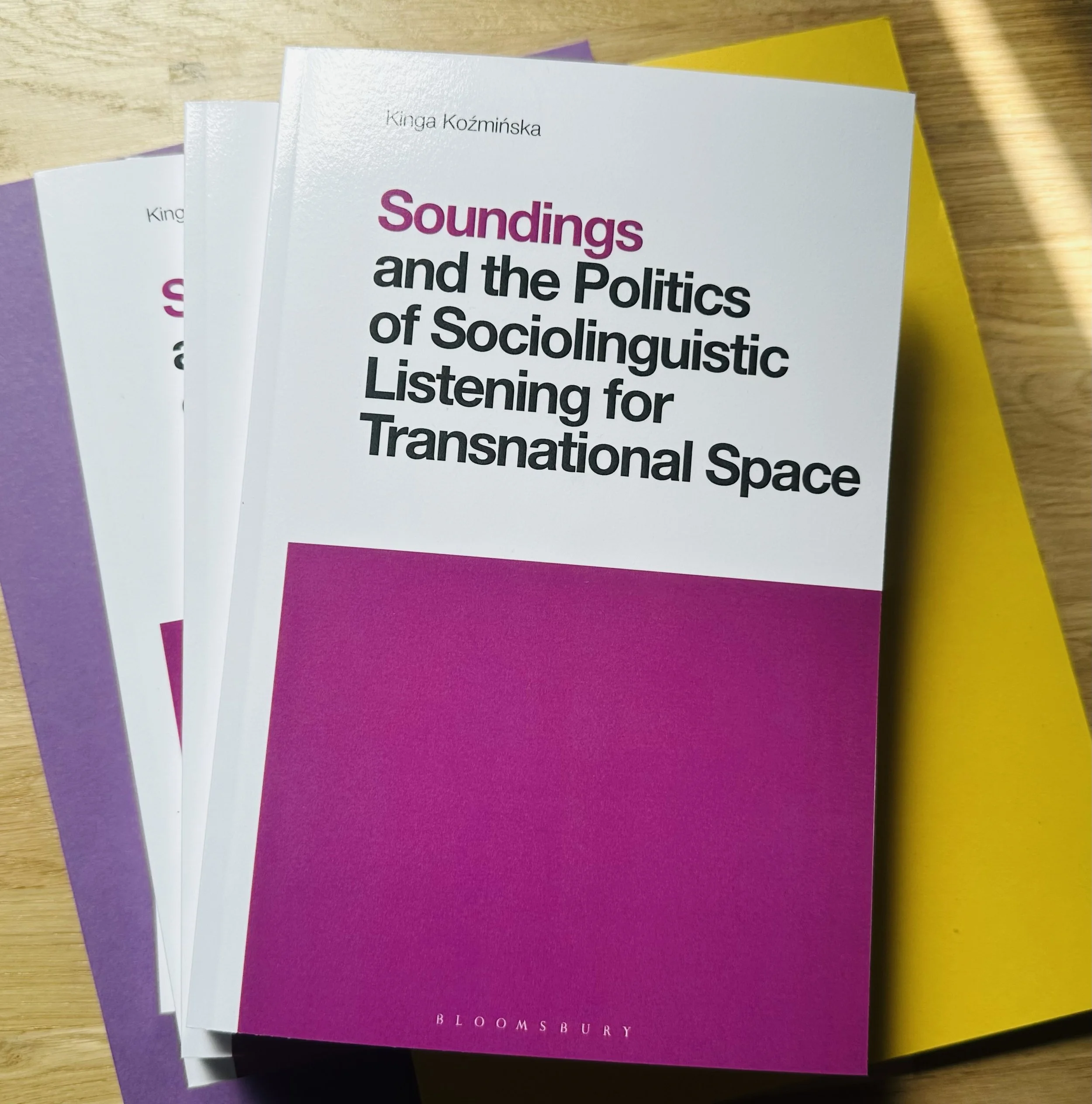Projects
My work aims to contribute to crafting new ways of thinking about changes in sensory modalities and material-semiotic practices in transnational space. I work with situated audio and audiovisual recordings to understand how variously positioned humans use voice and how machines interpret it. Below you can find information about some of my projects. A list of all academic publications is available here. Work on sounding and listening
Title: Soundings and the Politics of Sociolinguistic Listening for Transnational Space. (2024) London: Bloomsbury Academic.
“Beautifully written, cogently argued and politically engaged, this book is a ground-breaking contribution to sociolinguistics. It is a theoretical and analytical tour de force that forces the reader to completely reconsider the notions of sounding/listening in relation to mobility from a material semiotic perspective. A must read!’ (Back cover endorsement from Tommaso Milani, Pennsylvania State University, USA)
-
Part of my work involves working on the role of language in contemporary cosmopolitan-vernacular transformations and studying the sonic dimension of discourse with mixed methods: discourse analysis and statistical modelling (Praat, R, AntConc) of linguistic variation. Based on my PhD at the University of Oxford, this work closely examines the ways in which transnational actors assemble self and collective images through their interactional moves in situated events. In Soundings, I discuss emerging sounded differences used to differentiate between various images of time-space-personhood among a group of Polish-English-speaking actors in Britain, and propose to redefine the practice of sociolinguistic listening as curatorship and openness.
From fieldwork to algorithms
Work in progress
-
My work is data-driven: I collect situated audio and audio-visual recordings in ethnographic projects to understand how to study and model language in the context of changing sensory modalities in the current communicative environment at different intersections of society. More recently, I have been working with audiovisual recordings of everyday caretaker-child interactions collected for the Family Language Policy project (ESRC-funded) to rethink human language socialization in the age of AI technologies. Through multimodal data collection and analysis and computational modelling techniques, this work will provide a basis for my next book putting human language from the margins at the centre of linguistic theorising and language modelling debates.
Accent bias in technology
Work in progress
-
I’m currently working on questions of accent bias in voice AI technologies. My publications in progress focus on reimagining accents and accent bias in relation to research of sociolinguistic perception and listening subjects and on automatic transcriptions in relation to insights from studies of human transcriptions. I am also developing a new collaborative project together with colleagues in computer science, experimental phonetics and criminology focussing on the opportunities and risks stemming from the introduction of automatic speech recognition systems across contexts and groups.


